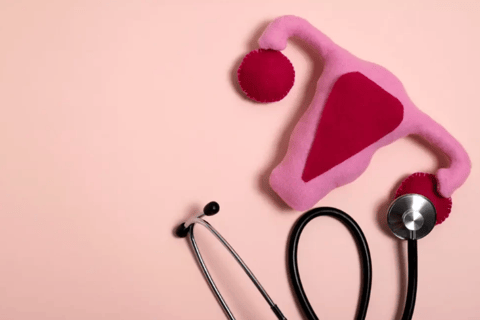Treatment of Polycystic Ovarian Syndrome (PCOS)
Discover various PCOS treatment methods, including lifestyle changes, hormone therapy, medications like Metformin, and medical procedures. Learn how to manage symptoms such as hirsutism, irregular menstruation, and infertility with effective care.
BODY HEALTHPCOS TREATMENT
11/12/20243 min read
PCOS treatment varies according to specific symptoms experienced, such as hirsutism (excessive hair growth), infertility, or acne. Treatment strategies generally involve a combination of lifestyle changes, medication use, and special medical procedures tailored to each patient's needs. Here are some common methods used to manage PCOS:
1. Lifestyle Changes
Regular Exercise and Low-Calorie Diet :
Weight loss often becomes the first step in managing PCOS symptoms, especially for those with high body mass index. A 5-10% weight loss can help improve menstrual cycles and increase fertility. A low-calorie diet rich in fiber and balanced nutrients helps reduce insulin resistance, one of the main factors triggering PCOS symptoms.
Healthy Eating Pattern Management :
Consuming low glycemic index foods (such as vegetables, fruits, and grains) helps control blood sugar levels and improve insulin sensitivity. Avoiding processed and sweet foods can also support weight loss and reduce inflammation risk, which is often associated with PCOS.
2. Medications
Combination Contraceptive Pills :
Birth control pills containing a combination of estrogen and progesterone hormones are a common choice to control menstrual cycles and reduce androgen levels. The hormones in these pills can suppress excessive androgen production, which is one of the main causes of symptoms like acne and hirsutism.
Progesterone :
For patients who cannot or do not want to use birth control pills, doctors may prescribe progesterone for 10-14 days in one or two months to regulate menstrual cycles. Progesterone use helps prevent abnormal thickening of the uterine wall and reduces the risk of endometrial cancer.
Ovulation-Inducing Drugs :
Clomifene : This drug stimulates ovulation and is often recommended as the first treatment for women with PCOS who want to get pregnant.
Letrozole : Letrozole is an alternative to clomifene and is also effective in stimulating ovulation.
Metformin : This diabetes medication helps improve insulin sensitivity, which is important for patients with insulin resistance. Metformin use can also help lower androgen levels and regulate menstrual cycles.
Spironolactone :
Spironolactone is a diuretic medication that is also used to reduce androgen effects, especially on the skin. This medication helps reduce symptoms of hirsutism and acne but is not suitable for women who are pregnant or planning pregnancy.
3. Special Medical Procedures
Electrolysis : Electrolysis is a procedure to remove excess hair in certain body areas, which is often a problem in PCOS patients. This procedure uses low electrical current to destroy hair follicles. Usually, several sessions are needed to get optimal results.
Complications of Polycystic Ovarian Syndrome (PCOS)
Untreated PCOS can increase the risk of several long-term health complications, including:
Sleep Disorders: PCOS is often associated with sleep apnea or other sleep disorders, especially in women with obesity.
Psychological Disorders: This condition can cause anxiety disorders, depression, and eating disorders, which affect the sufferer's quality of life.
Infertility: Irregular or non-existent ovulation causes difficulty getting pregnant, which is one of the main problems in PCOS patients.
Miscarriage and Premature Birth: Women with PCOS have a higher risk of experiencing miscarriage or premature birth.
Diabetes and Metabolic Syndrome: Insulin resistance increases the risk of type 2 diabetes and metabolic syndrome, which includes hypertension, obesity, and increased cholesterol levels.
Endometrial Cancer: Irregular or absent menstrual cycles cause the uterine wall to thicken, which increases the risk of endometrial cancer.Bottom of Form
📝 Also Read: What is Sleep Apnea?
FAQs about PCOS
How can hirsutism in PCOS be managed?
Hirsutism can be managed through the use of spironolactone, birth control pills, or procedures such as electrolysis for hair removal.Can PCOS be cured?
PCOS cannot be completely cured, but its symptoms can be effectively managed through a combination of medication and appropriate lifestyle changes.Is birth control safe for treating PCOS?
Yes, combination birth control pills (containing estrogen and progesterone) are generally safe and effective for regulating menstrual cycles and reducing androgen levels. However, their use should be under the supervision of a doctor.How does Metformin work in treating PCOS?
Metformin works by:Increasing insulin sensitivity
Reducing androgen levels
Helping regulate menstrual cycles
Supporting weight loss
How long does it take to see results from PCOS treatment?
The time varies based on the treatment type:Lifestyle changes: 3-6 months
Birth control pills: 3-4 months
Metformin: 4-6 months
Fertility medications: varies per individual
What foods should be avoided by individuals with PCOS?
Foods to limit include:Processed foods
Sugary foods
Foods high in saturated fats
Sugary drinks
High glycemic index foods


